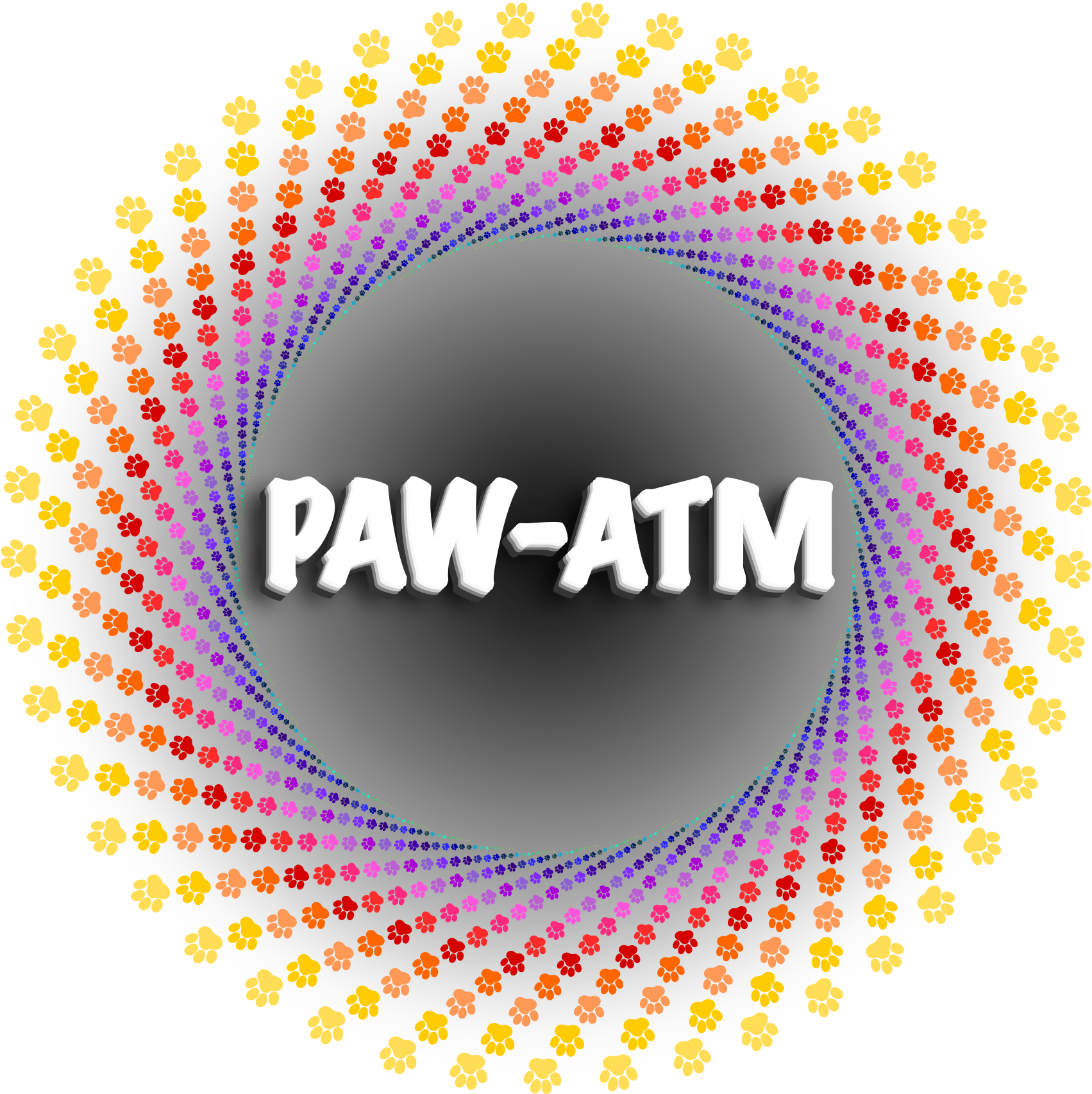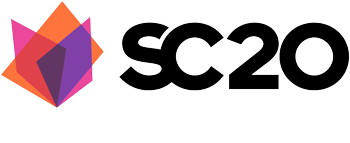Welcome to the PAW-ATM Workshop.
- Proceedings
- Program
- Important dates
- Summary
- Scope and Aims
- Topics
- Submissions
- Organization
- Previous Instances of PAW-ATM
Program
- 14:30 - 14:33 Karla Morris, Rosa M. Badia, Bradford L. Chamberlain, Bill Long, and Sean Treichler
Introduction
(Presentation)
- 14:33 - 15:10 Keynote Speaker: John Shalf - Lawrence Berkeley National Laboratory
Performance Portability in the Age of Extreme Heterogeneity
(Abstract)
- 15:10 - 15:20 Break (10 min)
- 15:20 - 16:10 Session 1: Task Graph Frameworks
- 15:20 - 15:45 Alexandre Bardakoff, Bruno Bachelet, Timothy Blattner, Walid Keyrouz, Gerson C. Kroiz, and Loïc Yon
Hedgehog: Understandable Scheduler-Free Heterogeneous
Asynchronous Multithreaded Data-Flow Graphs
(Presentation)
- 15:45 - 16:10 Leopold Cambier, Yizhou Qian, and Eric Darve
TaskTorrent: a Lightweight Distributed Task-Based Runtime System in C++
(Presentation)
- 16:10 - 16:20 Break (10 min)
- 16:20 - 17:30 Session 2: Scientific Simulation
- 16:20 - 16:45 Martin Bogusz, Philipp Samfass, Alexander Pöppl, Jannis Klinkenberg, and Michael Bader
Evaluation of Multiple HPC Parallelization Frameworks in a Shallow Water
Proxy Application with Multi-Rate Local Time Stepping
(Presentation)
- 16:45 - 17:05 Heather Pacella, Alec Dunton, Alireza Doostan, and Gianluca Iaccarino
Task-parallel in situ data compression of large-scale computational fluid dynamics simulations
(Presentation ,
Extended Abstract)
- 17:05 - 17:30 Rupanshu Soi, Nischay Ram Mamidi, Elliott Slaughter, Kumar Prasun, Anil Nemili, and S.M. Deshpande
An Implicitly Parallel Meshfree Solver in Regent
(Presentation)
- 17:30 - 17:40 Break (10 min)
- 17:40 - 18:30 Session 3: Programming Models
- 17:40 - 18:05 Max Grossman, Howard Pritchard, Steve Poole, and Vivek Sarkar
HOOVER: Leveraging OpenSHMEM for High Performance, Flexible Streaming Graph Applications
(Presentation)
- 18:05 - 18:30 Samuel Khuvis, Karen Tomko, Jahanzeb Hashmi, and Dhabaleswar K. Panda
Exploring Hybrid MPI+Kokkos Tasks Programming Model
(Presentation)
- 18:30 - 18:40 Break to setup virtual happy hour
- 18:40 - 19:40 Virtual Happy Hour: ZOOM discussion open to all Workshop Attendees.
Introduction
Performance Portability in the Age of Extreme Heterogeneity
- 15:20 - 15:45 Alexandre Bardakoff, Bruno Bachelet, Timothy Blattner, Walid Keyrouz, Gerson C. Kroiz, and Loïc Yon
Hedgehog: Understandable Scheduler-Free Heterogeneous Asynchronous Multithreaded Data-Flow Graphs
(Presentation)
- 15:45 - 16:10 Leopold Cambier, Yizhou Qian, and Eric Darve
TaskTorrent: a Lightweight Distributed Task-Based Runtime System in C++
(Presentation)
- 16:20 - 16:45 Martin Bogusz, Philipp Samfass, Alexander Pöppl, Jannis Klinkenberg, and Michael Bader
Evaluation of Multiple HPC Parallelization Frameworks in a Shallow Water
Proxy Application with Multi-Rate Local Time Stepping
(Presentation)
- 16:45 - 17:05 Heather Pacella, Alec Dunton, Alireza Doostan, and Gianluca Iaccarino
Task-parallel in situ data compression of large-scale computational fluid dynamics simulations
(Presentation ,
Extended Abstract)
- 17:05 - 17:30 Rupanshu Soi, Nischay Ram Mamidi, Elliott Slaughter, Kumar Prasun, Anil Nemili, and S.M. Deshpande
An Implicitly Parallel Meshfree Solver in Regent
(Presentation)
- 17:40 - 18:05 Max Grossman, Howard Pritchard, Steve Poole, and Vivek Sarkar
HOOVER: Leveraging OpenSHMEM for High Performance, Flexible Streaming Graph Applications
(Presentation)
- 18:05 - 18:30 Samuel Khuvis, Karen Tomko, Jahanzeb Hashmi, and Dhabaleswar K. Panda
Exploring Hybrid MPI+Kokkos Tasks Programming Model
(Presentation)
Important dates
- Submission Deadline:
July 24, 2020 July 31, 2020
- Author Notification: September 23, 2020
- Camera Ready: October 1, 2020
- Workshop Date: November 12, 2020
- Workshop Rebroadcast Date: November 13, 2020
Summary
Important dates
- Submission Deadline:
July 24, 2020July 31, 2020 - Author Notification: September 23, 2020
- Camera Ready: October 1, 2020
- Workshop Date: November 12, 2020
- Workshop Rebroadcast Date: November 13, 2020
Summary
Architectural hierarchy and heterogeneity makes programming supercomputers challenging. In practice, HPC applications tend to be written using a mix of programming models—like C++, MPI, CUDA, and/or OpenMP—each of which is becoming more complex over time. This negatively impacts the costs of developing, maintaining, and porting HPC applications.
Meanwhile, alternative HPC programming models strive to improve things by raising the level of abstraction; incorporating modern features; and/or leveraging the respective strengths of programmers, compilers, and runtimes. These alternatives take the form of new languages (e.g., Chapel, Regent, XcalableMP), frameworks for large-scale data science (e.g., Arkouda, Dask, Spark), or extensions to existing languages (e.g., Charm++, COMPSs, Fortran, Legion, UPC++).
PAW-ATM is a forum for discussing HPC applications written in alternatives to MPI+X. Its goal is to bring together application experts and proponents of high-level languages to present concrete example uses of such alternatives, describing their benefits and challenges.
Scope and Aims
The PAW-ATM workshop aims to serve as a forum for exhibiting parallel applications developed using high-level parallel programming models that serve as alternatives to MPI+X-based programming. We encourage the submission of papers and talks from the community detailing practical distributed-memory applications written using alternatives to MPI+X, including characterizations of scalability and performance, expressiveness and programmability, as well as any downsides or areas for improvement in such models. In doing so, our hope is to create a setting in which application authors, language designers, and architects can present and discuss the state of the art in alternative scalable programming models while also wrestling with how to increase their effectiveness and adoption. Beyond well-established HPC scientific simulations, we also encourage submissions exploring artificial intelligence, big data analytics, machine learning, and other emerging application areas.
Topics
Topics of interest include, but are not limited to:
- Novel application development using high-level parallel programming languages and frameworks.
- Examples that demonstrate performance, compiler optimization, error checking, and reduced software complexity.
- Applications from artificial intelligence, data analytics, bioinformatics, and other novel areas.
- Performance evaluation of applications developed using alternatives to MPI+X and comparisons to standard programming models.
- Novel algorithms enabled by high-level parallel abstractions.
- Experience with the use of new compiler and runtime environments.
- Libraries using or supporting alternatives to MPI+X.
- Benefits of hardware abstraction and data locality on algorithm implementation.
Submissions
Submissions are solicited in two categories:
Full-length papers will be published in the workshop proceedings. Submitted papers must describe original work that has not appeared in, nor is under consideration for, another conference or journal. Papers shall be eight (8) pages minimum and not exceed ten (10) including text, appendices, and figures. Appendix pages related to the reproducibility initiative dependencies, namely the Artifact Description (AD) and Artifact Evaluation (AE), are not included in the page count.
Extended abstracts will be evaluated separately and will not be included in the published proceedings; they are intended to propose timely communications of novel work that will be formally submitted elsewhere at a later stage, and/or of already published work that would be of interest to the PAW-ATM audience in terms of topic and timeliness. Extended abstracts shall not exceed four (4) pages.
When deciding between submissions with similar merit, submissions whose focus relates more directly to the key themes of the workshop (application studies, computing at scale, high-level alternatives to MPI+X) will be given priority over those that don't. In addition, full-length paper submissions will be given preference over extended abstracts.
Submissions shall be submitted through Linklings using 10pt font in the IEEE format.PAW-ATM follows the reproducibility initiative of SC20. AD/AE sample form is avaliable.
Organization
Workshop Chair
- Karla Morris - Sandia National Laboratories
Organizing Committee
- Rosa M. Badia - Barcelona Supercomputing Center
- Bradford L. Chamberlain - Cray, a Hewlett Packard Enterprise company
Program Committee Chairs
- Bill Long - Cray, a Hewlett Packard Enterprise company
- Sean Treichler - NVIDIA
Program Committee
- Scott Baden - University of California San Diego
- Rosa M. Badia - Barcelona Supercomputing Center
- Bradford L. Chamberlain - HPE
- Kyle Chard - University of Chicago
- Valentin Churavy - Massachusetts Institute of Technology
- Magne Haveraaen - University of Bergen
- Engin Kayraklioglu - HPE
- Elisabeth Larsson - Uppsala University
- Bill Long - HPE
- Xavier Martorell - Barcelona Supercomputing Center
- Patrick McCormick - Los Alamos National Laboratory
- Esteban Meneses Rojas - National High Technology Center
- Karla Morris - Sandia National Laboratories
- Francesco Rizzi - NextGen Analytics
- Mitsuhisa Sato - RIKEN Advanced Institute for Computational Science
- Gabriel Tanase - Amazon Web Services (AWS)
- Kenjiro Taura - University of Tokyo
- Sean Treichler - NVIDIA
Advisory Committee
- Salvatore Filippone - University of Roma "Tor Vergata"
- Katherine A. Yelick - Lawrence Berkeley National Laboratory
- Damian W. I. Rouson - Sourcery Institute


